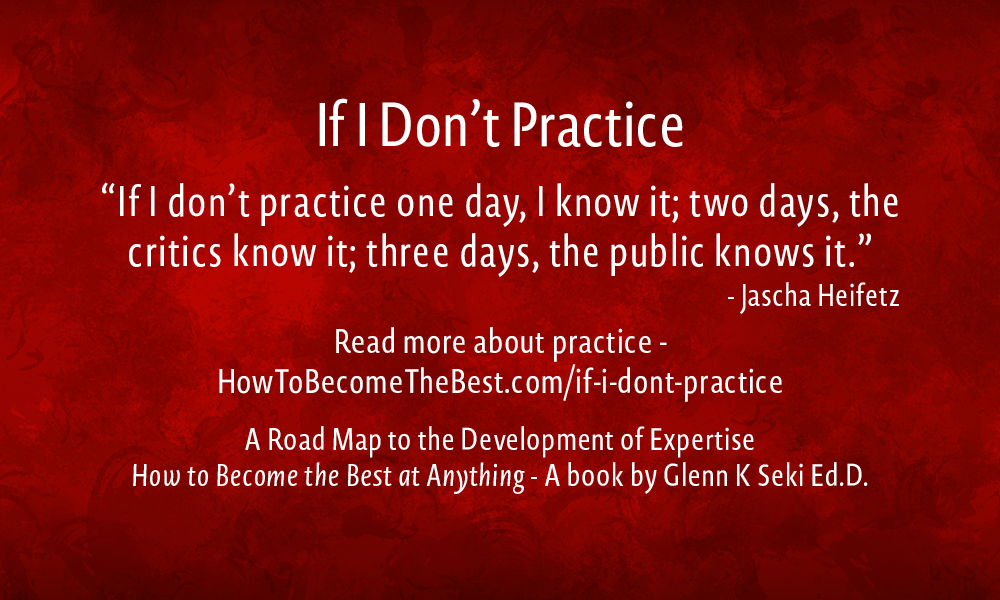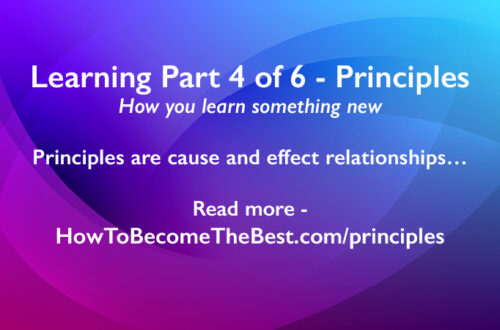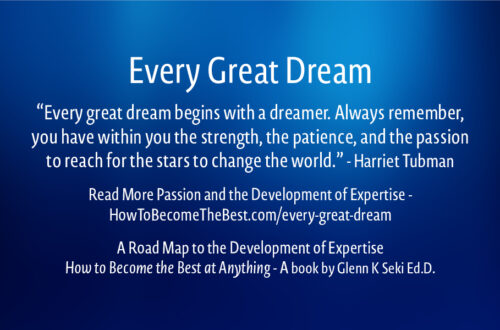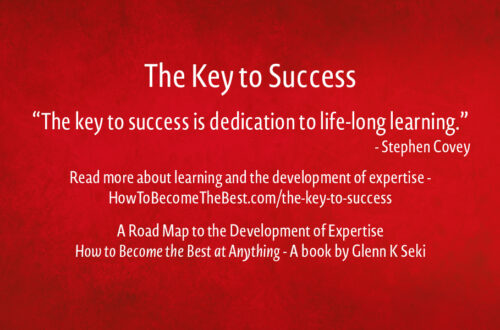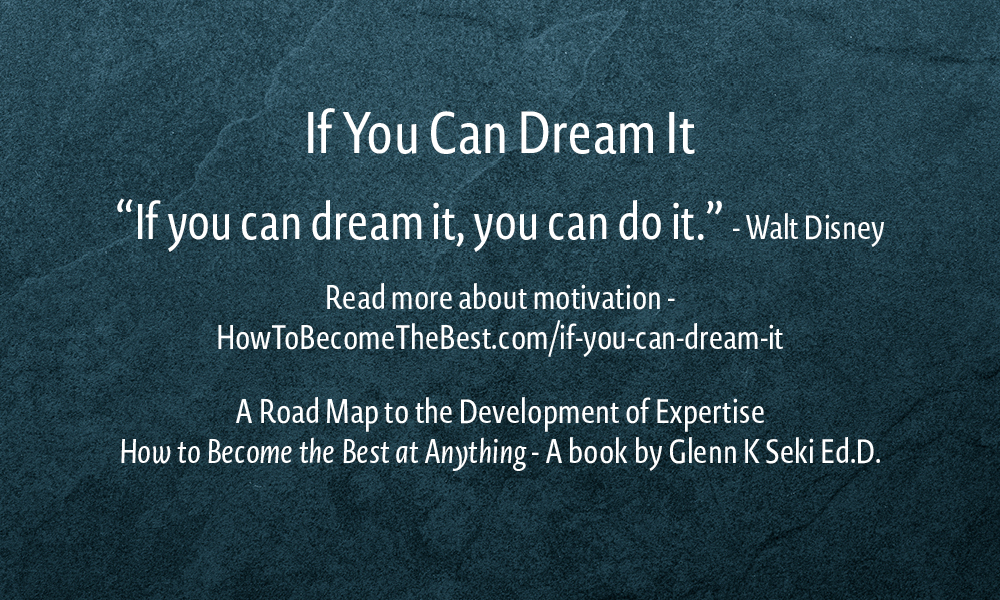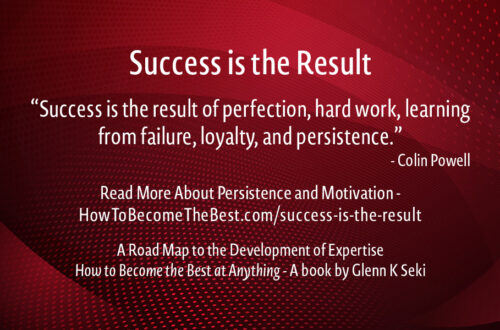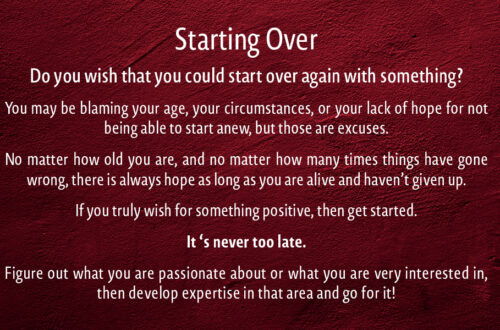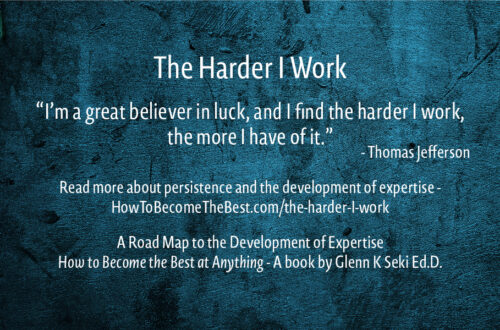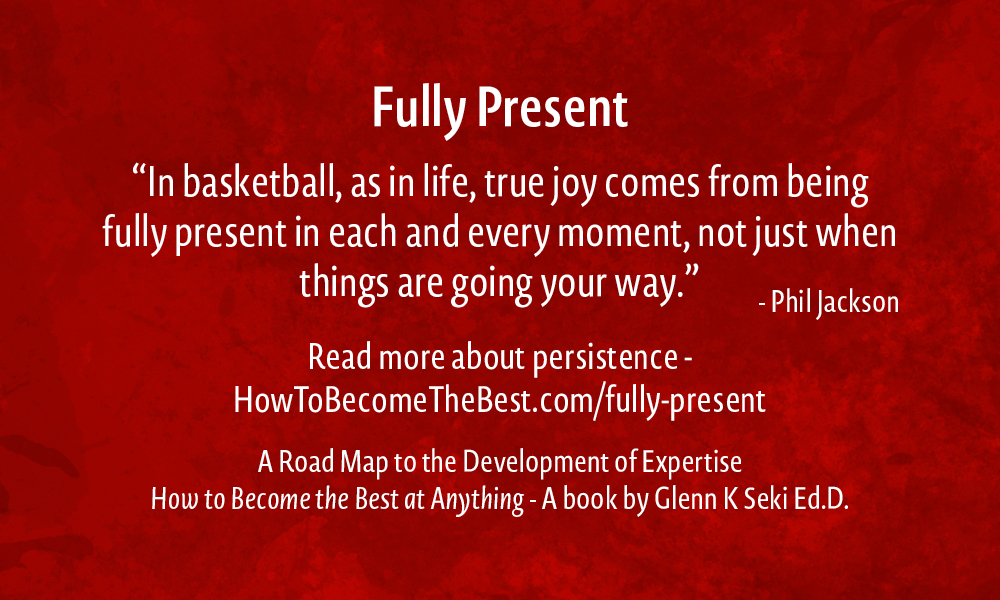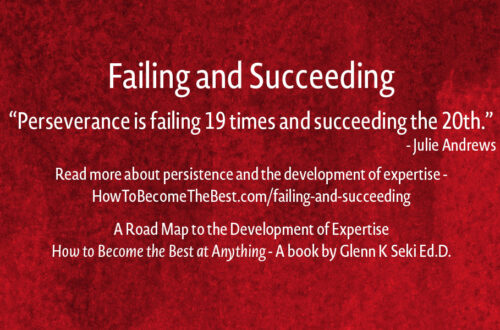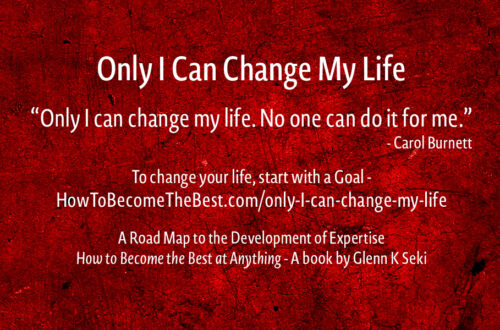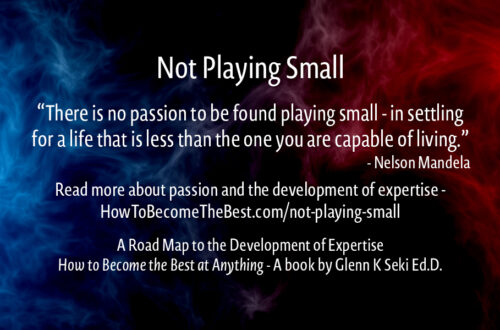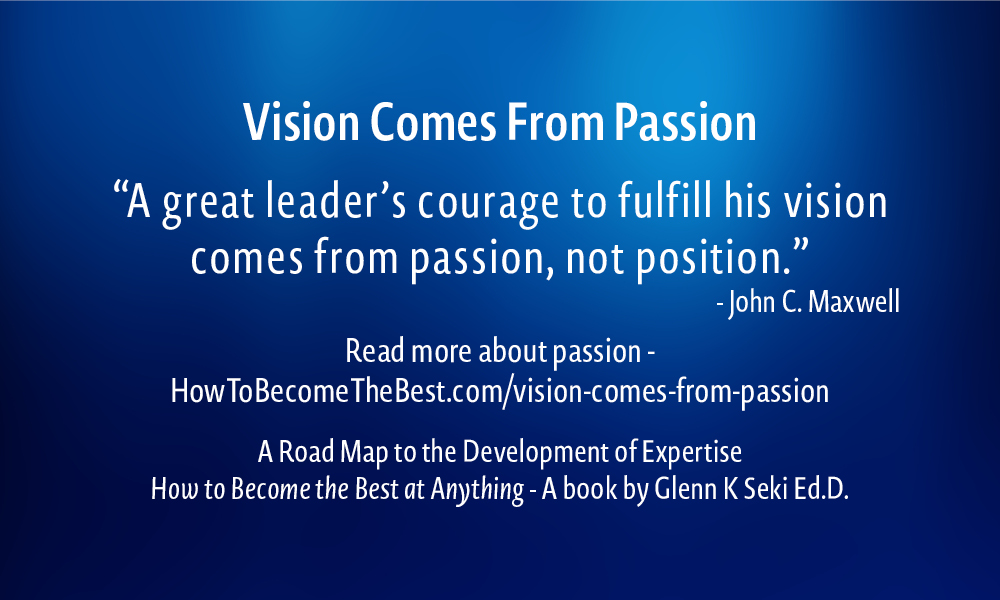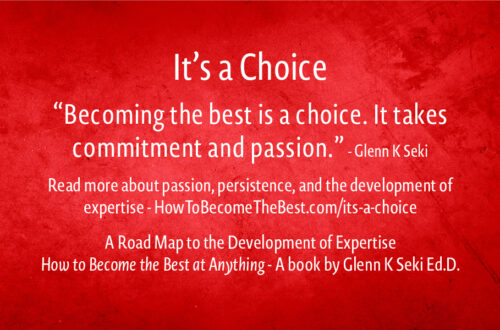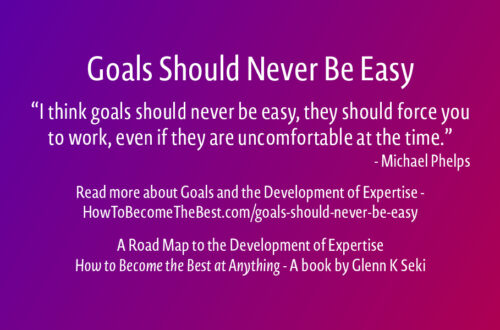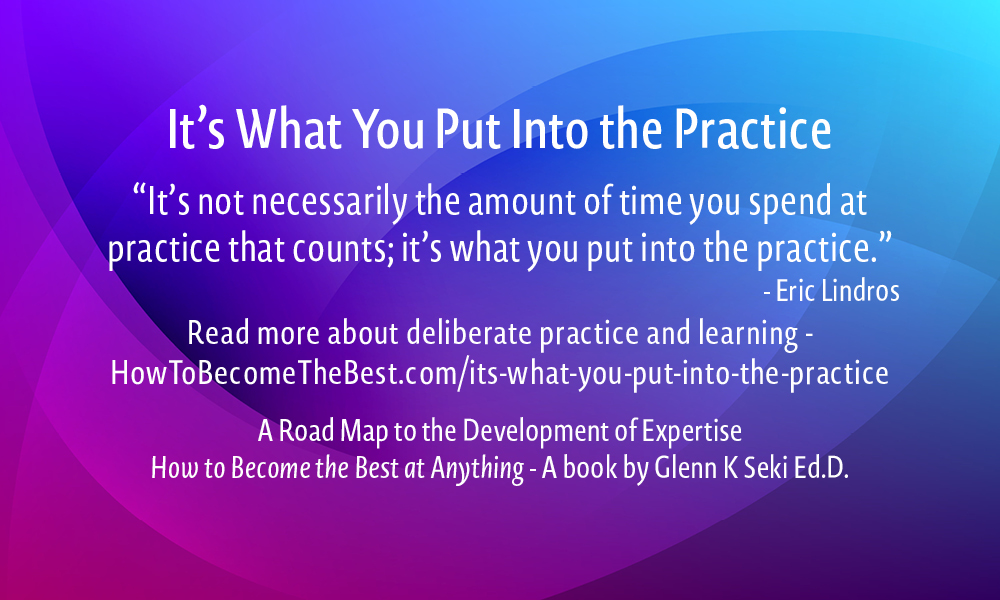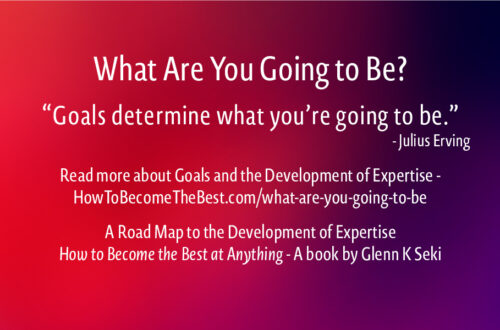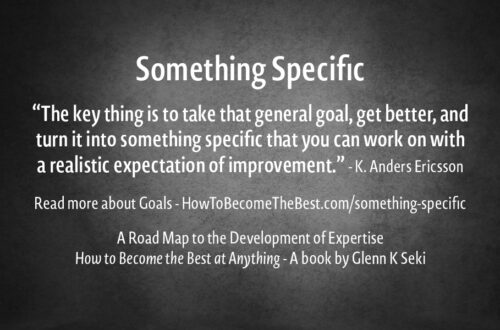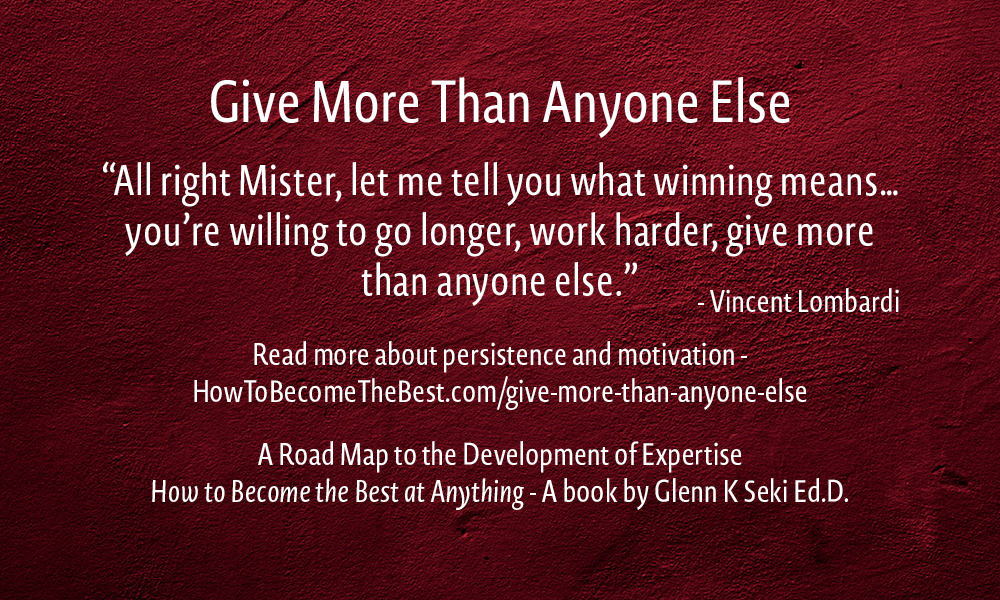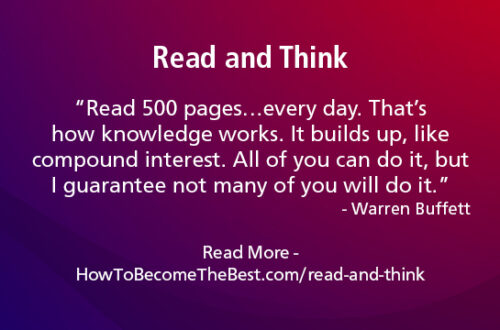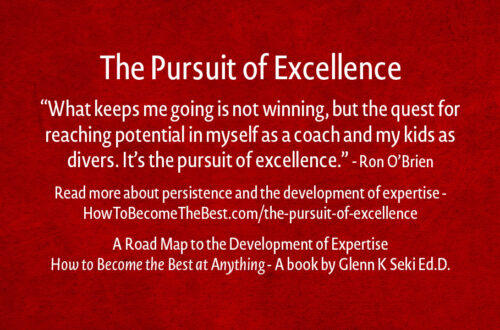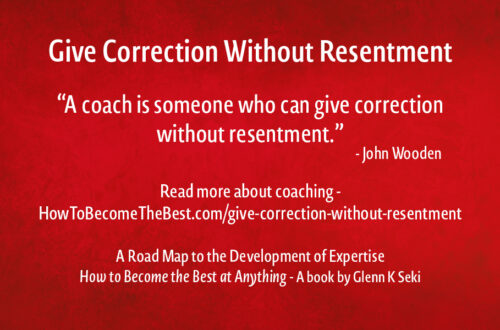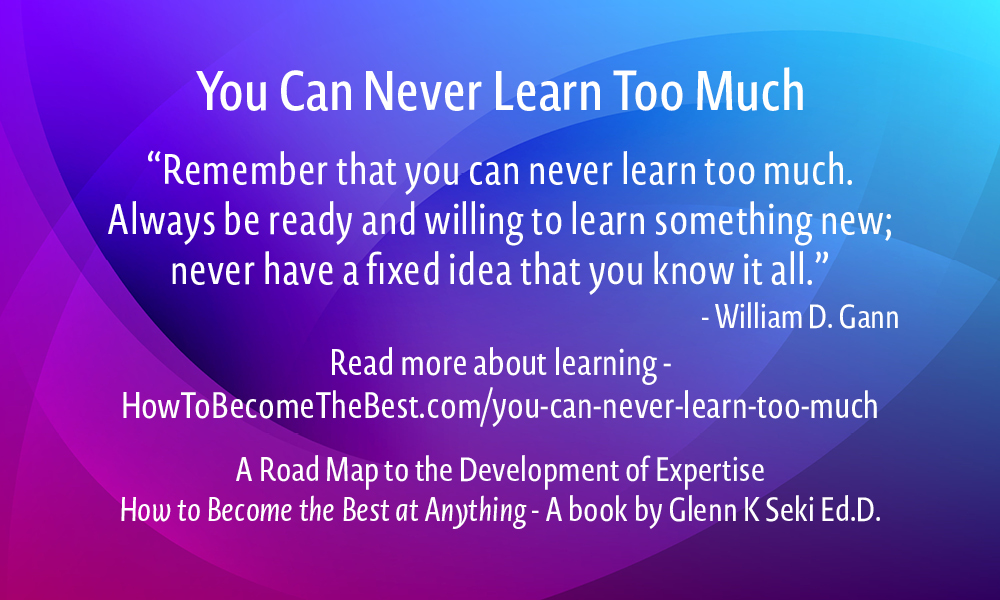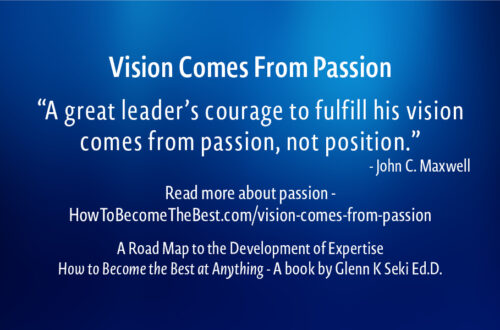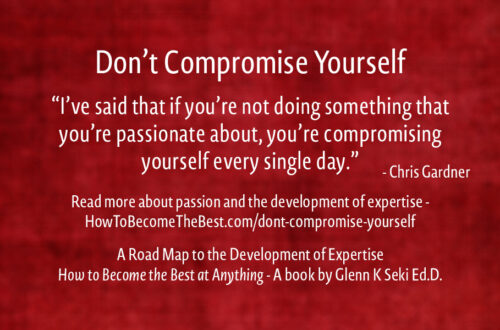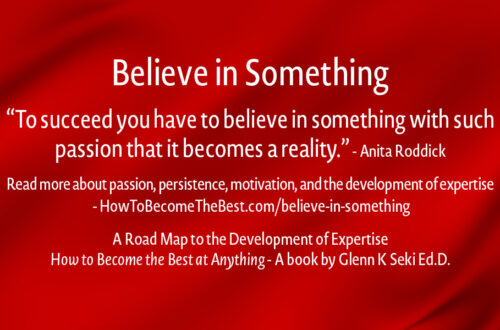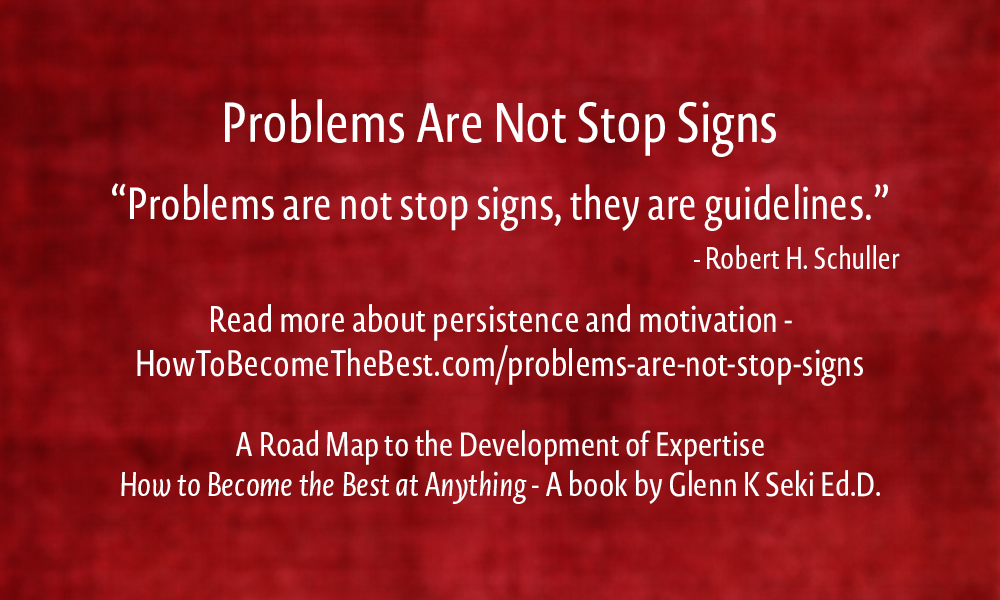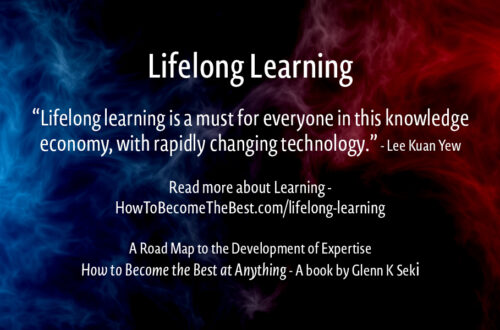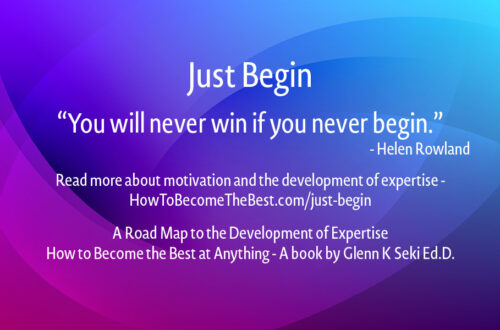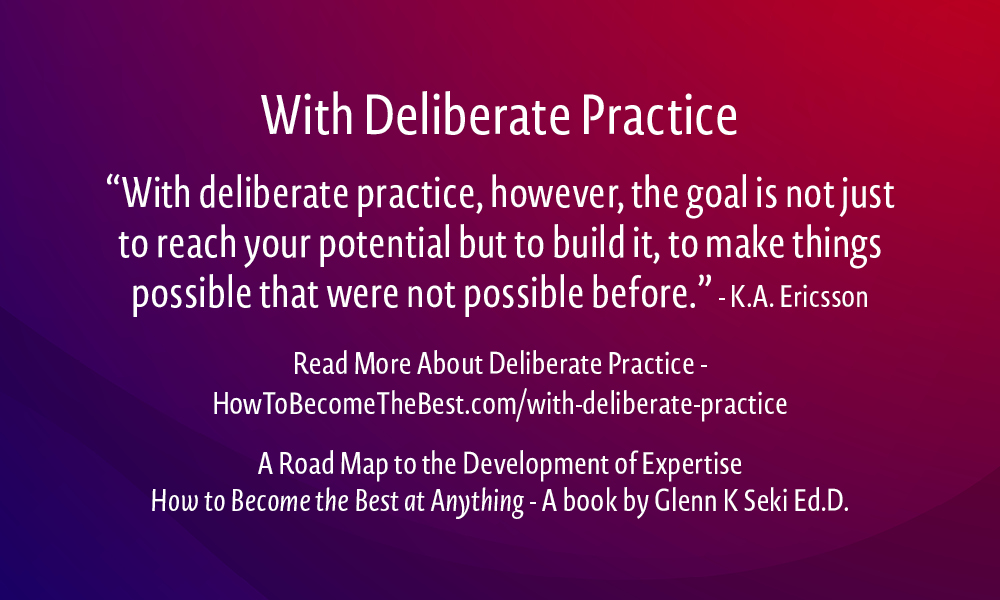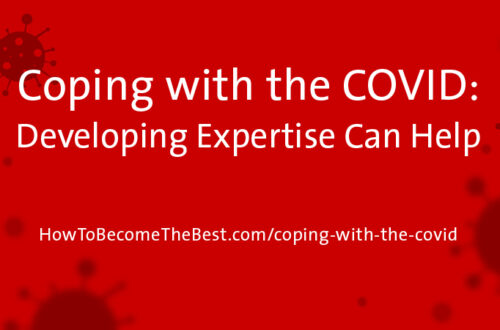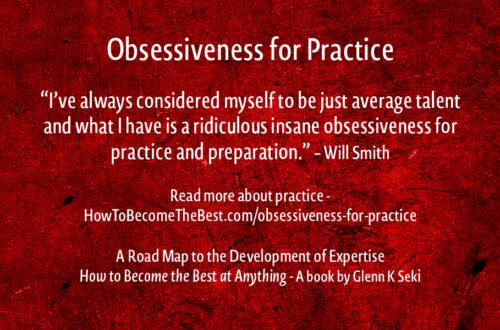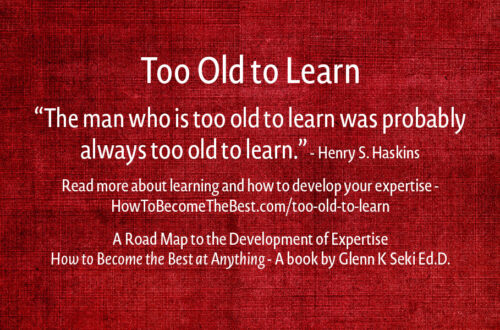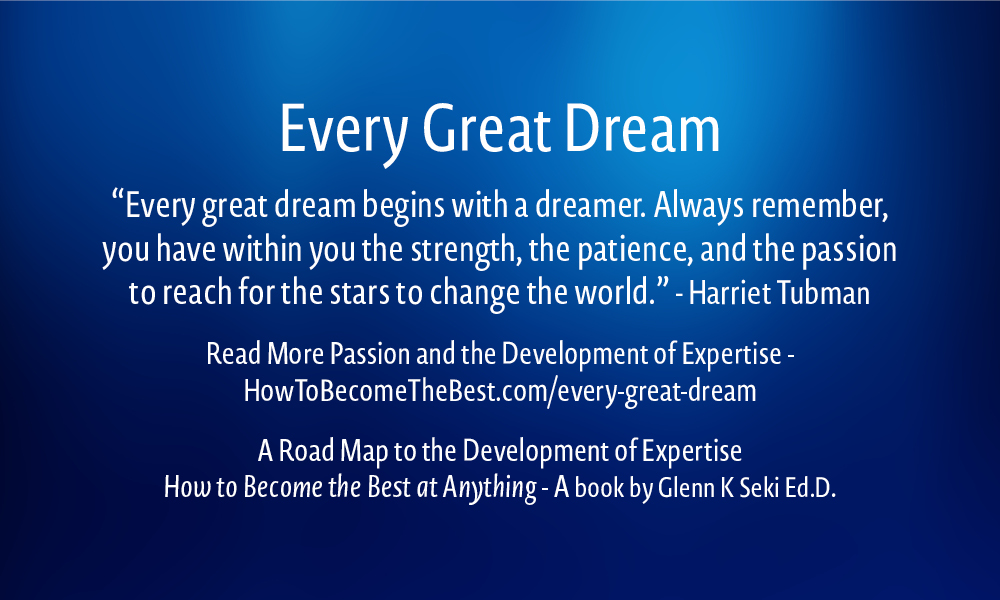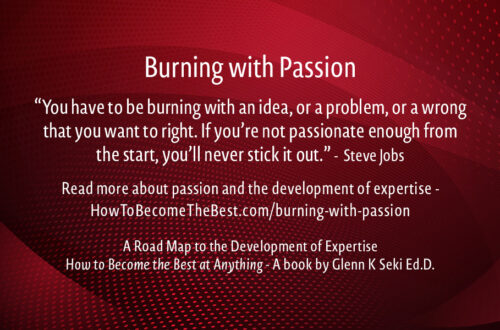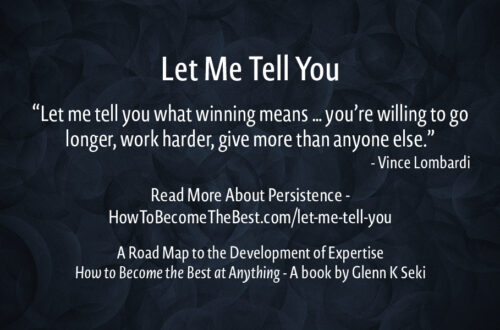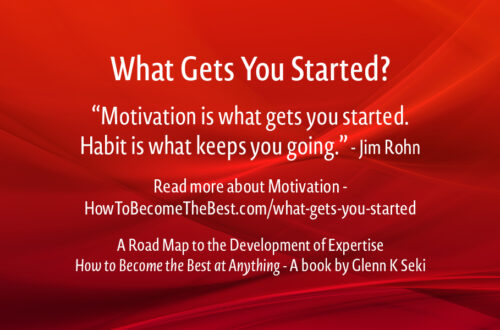“If I don’t practice one day, I know it; two days, the critics know it; three days, the public knows it.” – Jascha Heifetz *** Deliberate Practice and Automaticity An excerpt from How To Become The Best at Anything, Chapter 8, Deliberate Practice and Learning Deliberate Practice “To become the best takes practice, lots and lots of practice. I have mentioned the 10,000-hour rule. It takes about 10,000 hours of practice to get really good at something and not just any type of practice, but deliberate practice. Deliberate practice is practicing to get better. The classic example is a man who has gone golfing almost every weekend for the past…
-
-
If You Can Dream It
“If you can dream it, you can do it.” – Walt Disney *** An excerpt from How To Become The Best at Anything, Chapter 9, Persistence, Motivation, and More About Your Path How Motivation Works “Basically, there are two types of motivation, extrinsic and intrinsic. Extrinsic motivation come from an outside source and intrinsic motivation comes from inside you. (To help you remember, Extrinsic, Ex = Exit = motivation from outside, Intrinsic, In = Inside = motivation from inside.) Extrinsic motivation is like when your mother bribed you as a child with candy to do something. Receiving candy was your extrinsic motivation to do what your mother wanted you to…
-
Fully Present
“In basketball, as in life, true joy comes from being fully present in each and every moment, not just when things are going your way.” – Phil Jackson *** An excerpt from How To Become The Best at Anything, Chapter 9, Persistence, Motivation, and More About Your Path “Keep practicing no matter what. It will take years, you know this, so you have to keep practicing. You have to keep practicing getting better every time you practice. This is a very hard thing to do. You will get tired, bored, and frustrated. It is hard to keep your focus while practicing. I heard a story about John Wooden (often considered…
-
Vision Comes From Passion
“A great leader’s courage to fulfill his vision comes from passion, not position.” – John C. Maxwell *** An excerpt from How To Become The Best at Anything, Chapter 1, Passion and Interest “What is your passion? What are you passionate about? Are you passionate about a sport, say basketball, or surfing? Tennis anyone? How about art, or music. Perhaps you’re zeroed in on an academic field such as biology, or economics. Maybe you have a passion for exploring, with an eye on the Himalayas. Don’t have a passion, then what are you interested in? Interest and achievement go hand in hand. It is easier to achieve in a domain…
-
It’s What You Put Into the Practice
“It’s not necessarily the amount of time you spend at practice that counts; it’s what you put into the practice.” – Eric Lindros *** An excerpt from How To Become The Best at Anything, Chapter 8, Deliberate Practice and Learning Deliberate Practice “To become the best takes practice, lots and lots of practice. I have mentioned the 10,000-hour rule. It takes about 10,000 hours of practice to get really good at something and not just any type of practice, but deliberate practice. Deliberate practice is practicing to get better. The classic example is a man who has gone golfing almost every weekend for the past twenty years. He has a…
-
Give More Than Anyone Else
“All right Mister, let me tell you what winning means… you’re willing to go longer, work harder, give more than anyone else.” – Vincent Lombardi *** Persistence and Motivation An excerpt from How To Become The Best at Anything, Chapter 9, Persistence, Motivation, and More About Your Path “Keep practicing no matter what. It will take years, you know this, so you have to keep practicing. You have to keep practicing getting better every time you practice. This is a very hard thing to do. You will get tired, bored, and frustrated. It is hard to keep your focus while practicing. I heard a story about John Wooden (often considered…
-
You Can Never Learn Too Much
“Remember that you can never learn too much. Always be ready and willing to learn something new; never have a fixed idea that you know it all.” William D. Gann A Road Map to the Development of Expertise How to Become the Best at Anything – A book by Glenn K Seki Ed.D. *** An excerpt from How To Become The Best at Anything, Chapter 8, Deliberate Practice and Learning Learning “When you are trying to learn something new or you are teaching someone something new, it can be a very daunting task. It is difficult because learning something new is not easy, but it can be made easier if…
-
Problems Are Not Stop Signs
“Problems are not stop signs, they are guidelines.” – Robert H. Schuller A Road Map to the Development of Expertise How to Become the Best at Anything – A book by Glenn K Seki Ed.D. *** An excerpt from How To Become The Best at Anything, Chapter 9, Persistence, Motivation, and More About Your Path “Keep practicing no matter what. It will take years, you know this, so you have to keep practicing. You have to keep practicing getting better every time you practice. This is a very hard thing to do. You will get tired, bored, and frustrated. It is hard to keep your focus while practicing. I heard…
-
With Deliberate Practice
“With deliberate practice, however, the goal is not just to reach your potential but to build it, to make things possible that were not possible before.” – K.A. Ericsson A Road Map to the Development of Expertise How to Become the Best at Anything – A book by Glenn K Seki Ed.D. *** Deliberate Practice and Automaticity An excerpt from How To Become The Best at Anything, Chapter 8, Deliberate Practice and Learning “To become the best takes practice, lots and lots of practice. I have mentioned the 10,000-hour rule. It takes about 10,000 hours of practice to get really good at something and not just any type of practice,…
-
Every Great Dream
“Every great dream begins with a dreamer. Always remember, you have within you the strength, the patience, and the passion to reach for the stars to change the world.” – Harriet Tubman A Road Map to the Development of Expertise How to Become the Best at Anything – A book by Glenn K Seki Ed.D. *** What is your Passion? An excerpt from How To Become The Best at Anything, Chapter 1, Passion and Interest “What is your passion? What are you passionate about? Are you passionate about a sport, say basketball, or surfing? Tennis anyone? How about art, or music. Perhaps you’re zeroed in on an academic field such…
